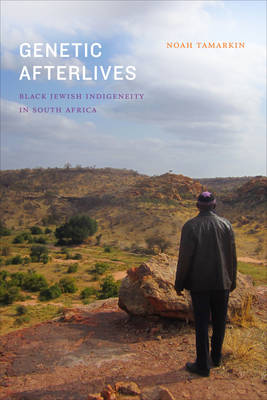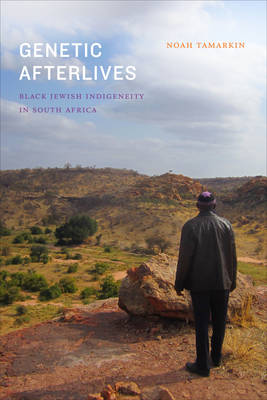
Bedankt voor het vertrouwen het afgelopen jaar! Om jou te bedanken bieden we GRATIS verzending (in België) aan op alles gedurende de hele maand januari.
- Afhalen na 1 uur in een winkel met voorraad
- In januari gratis thuislevering in België
- Ruim aanbod met 7 miljoen producten
Bedankt voor het vertrouwen het afgelopen jaar! Om jou te bedanken bieden we GRATIS verzending (in België) aan op alles gedurende de hele maand januari.
- Afhalen na 1 uur in een winkel met voorraad
- In januari gratis thuislevering in België
- Ruim aanbod met 7 miljoen producten
Zoeken
€ 213,95
+ 427 punten
Uitvoering
Omschrijving
In 1997, M. E. R. Mathivha, an elder of the black Jewish Lemba people of South Africa, announced to the Lemba Cultural Association that a recent DNA study substantiated their ancestral connections to Jews. Lemba people subsequently leveraged their genetic test results to seek recognition from the post-apartheid government as indigenous Africans with rights to traditional leadership and land, retheorizing genetic ancestry in the process. In Genetic Afterlives, Noah Tamarkin illustrates how Lemba people give their own meanings to the results of DNA tests and employ them to manage competing claims of Jewish ethnic and religious identity, African indigeneity, and South African citizenship. Tamarkin turns away from genetics researchers' results that defined a single story of Lemba peoples' "true" origins and toward Lemba understandings of their own genealogy as multivalent. Guided by Lemba people's negotiations of their belonging as diasporic Jews, South African citizens, and indigenous Africans, Tamarkin considers new ways to think about belonging that can acknowledge the importance of historical and sacred ties to land without valorizing autochthony, borders, or other technologies of exclusion.
Specificaties
Betrokkenen
- Auteur(s):
- Uitgeverij:
Inhoud
- Aantal bladzijden:
- 280
- Taal:
- Engels
- Reeks:
Eigenschappen
- Productcode (EAN):
- 9781478008828
- Verschijningsdatum:
- 16/10/2020
- Uitvoering:
- Hardcover
- Formaat:
- Genaaid
- Afmetingen:
- 152 mm x 229 mm
- Gewicht:
- 544 g

Alleen bij Standaard Boekhandel
+ 427 punten op je klantenkaart van Standaard Boekhandel
Beoordelingen
We publiceren alleen reviews die voldoen aan de voorwaarden voor reviews. Bekijk onze voorwaarden voor reviews.









